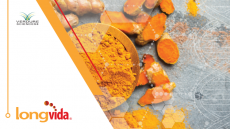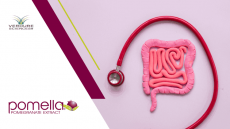Plant extracts may help reduce hot flashes during menopause

According to the National Institutes of Health, roughly 25 million women enter menopause each year worldwide. Symptoms range but include insomnia, hot flashes, anxiety, heart discomfort and vaginal dryness. A common treatment for these symptoms is hormone replacement therapy (HRT), however it can have serious side effects including cancer and cardiovascular disease, the study authors wrote.
Plant extracts and menopause
Plant extracts can be utilized in replacement of HRT, and with fewer side effects. While the mechanism of action is not completely understood, researchers believe the phytoestrogens in the natural compounds exhibit estrogen-like activities within the body through binding to estrogen receptors, helping to modulate the production of hormones.
In addition to soy and red clover, studies have shown other plant-derived dietary supplements such as fennel seed and St. John’s Wort improve menopause symptoms.
The authors noted, however, that while these studies have shown benefits, many had small sample sizes or inconsistent findings, prompting them to conduct a systematic review and meta analysis. Through this analysis, they confirmed the effectiveness of plant-based supplements and evaluated the effects on menopausal symptoms.
Study details
The systematic review and meta analysis included randomized placebo controlled clinical trials. For qualitative assessment, this included 67 studies; the quantitative assessment included 54 reports from 61 studies. Women in the studies were between the ages of 38 and 85 years, and measures included daily hot flash frequency, as well as the Kupperman Index (KI), menopause rating scale (MRS) and Greene Climacteric Scale (GCS) questionnaires.
The review "demonstrated that the consumption of plant-derived dietary supplements effectively alleviates HFs (hot flashes), a representative symptom of menopause," the authors wrote. "Furthermore, significant improvements were observed in the results of various types of questionnaires, including the KI, MRS and GCS, which can objectively evaluate menopausal symptoms."
The authors attribute these results mainly to the estrogenic effects of the plants studied.
A subsequent meta analysis showed that the dietary supplement group had significant improvements in all questionnaire scores when compared with the placebo group.
"These results indicate that the consumption of various plant-derived dietary supplements can comprehensively alleviate menopausal symptoms," the study concluded.
Source: Phytotherapy Research
doi: doi.org/10.1002/ptr.8112
“Efficacy of plant-derived dietary supplements in improving overall menopausal symptoms in women: An updated systematic review and meta-analysis”
Authors: Ra Oh, M., et al.














